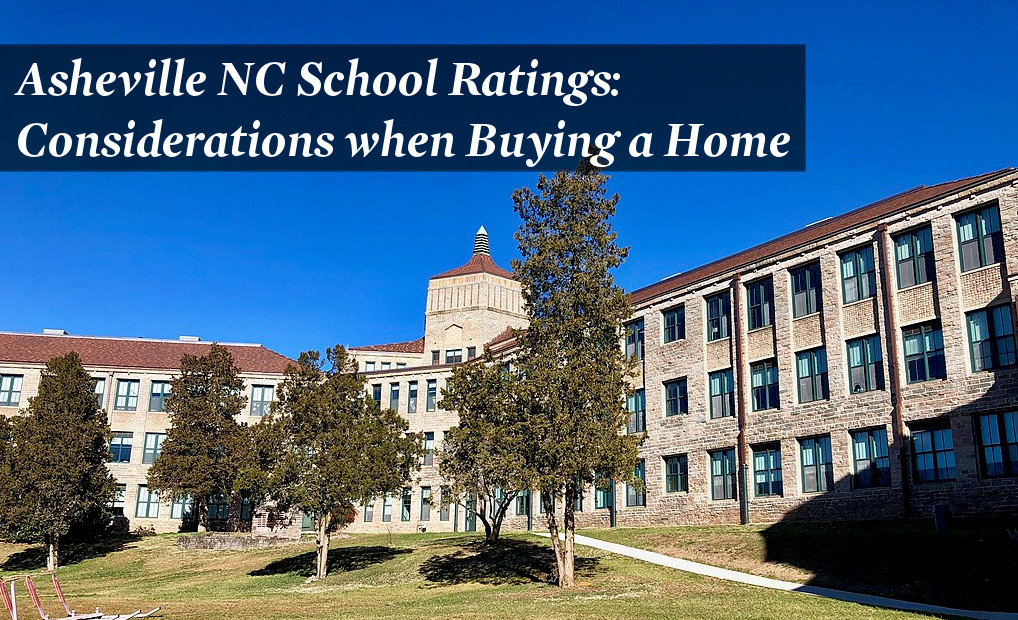Moving to a new place takes a lot of research and initiative. For families with children, knowing what type of neighborhood they’re moving to and what the surrounding school districts have to offer is usually top of the list. If you’re considering moving to Asheville, NC, we’ve already got a lot of that figured out for you. To help decide which schools and neighborhoods are a good fit for your family, take a look at our comprehensive list of school systems in Asheville and the surrounding areas, where we provide detailed statistics, ratings, and other info to help with your research.
In this article, we’ll discuss the different school districts in and around Asheville, as well as the different types of schools available. This includes public, charter, and private school options. We’ll also get into detailed information and ratings about Asheville area schools.
What Are The Various School Districts Surrounding Asheville?
Asheville and the surrounding areas offer a lot of viable options for families moving to Western North Carolina. We’ll start by looking at public schools. Some counties have multiple public school districts, so first let’s discuss how the public school districts are set up in the Asheville area.
Asheville is the largest city in Western North Carolina and sits in the middle of Buncombe County. It has its own school district called Asheville City Schools. Covering the areas just outside of the City of Asheville is the Buncombe County Schools system. Also known as BCS, this is a separate school system that encompasses multiple school districts with several campuses. BCS districts include:
- Enka District – Serves the Candler and Biltmore Lake Area.
- Erwin District – Serves the Leicester area.
- North Buncombe District – Serves Weaverville, Woodfin, and Barnardsville.
- Owen District – Serves Black Mountain, Swannanoa, and Montreat.
- Reynolds District – Serves the Fairview area.
- Roberson District – Serves the Arden Area and Biltmore Forest.
What are Asheville City Schools Demographics?
Otherwise known as ACS, Asheville City Schools has been teaching students for over 130 years and is ranked in the top 30% of all 272 school districts in North Carolina based on math and reading test results. According to data from the Public School Review on the Asheville City Schools district, ACS has 11 campuses, over 4500 students combined, and a student-teacher ratio of 14:1. This is less than the state’s average of 16:1.
Data from the National Center for Education Statistics (NCES) on ACS states that Asheville median household income for parents with children in public school is about 69K a year, with a population of approximately 40,466 thousand. The average household type is 59% married couples, with over 71% of the population owning their own home.
What are Buncombe County Schools Demographics?
Buncombe County Schools serves over 30,000 students between all its districts with 57 campuses. Data from Public School Review on Buncombe County Schools shows information regarding student/teacher ratio, testing ranks, and math and reading proficiency scores.
The data on BCS from the National Center for Education Statistics provides additional demographic information, including population, median household income, and home ownership statistics.
What are Asheville, NC and Buncombe County Public School Ratings?
Multiple factors go into ratings for schools, based on numbers the school gets for test scores, student academic progress, college readiness, and equity (how well a school serves the academic development of disadvantaged students). These evaluations are from information collected about Asheville City Schools by Great Schools and for Buncombe County Schools from Great Schools, a leading nonprofit that strives to give parents the information they need to discover educational opportunities for their children. Here are the Asheville and Buncombe County public school ratings sorted by elementary, middle, and high school.
The Scoop on Asheville Area Public Charter Schools
Charter schools offer families more choices even beyond the borders of their own school district. In fact, it’s common for students to carpool with others to a charter school that’s outside of their public school district. Buncombe County has several options for charter schools. A charter school is a publicly funded, independent entity established by community members, teachers, or parents under specific terms. Even if the school has limited spots for new students (which is a definite possibility), the parent can always submit their children into a lottery for entry.
The largest charter school in Asheville/Buncombe County that encompasses the most grade levels is Invest Collegiate Imagine, a charter school dedicated to teaching students kindergarten through 12th grade. Students from all over Buncombe County and several surrounding counties attend ICI Charter School.
Private Schools in Asheville and Buncombe County
There are approximately 40 private schools, or schools supported by private individuals or organizations, in Buncombe County. These schools have an interview process and practice exclusive entry based on several factors, such as test grades, academic success, and extracurricular endeavors.
Other Factors to Consider
In addition to checking out our area schools, it’s also important to consider other lifestyle factors as you find the best places to live in Western North Carolina, so you can find what works for you and your family. Reach out to us if you need any guidance on your home-buying journey.





Leave a Reply